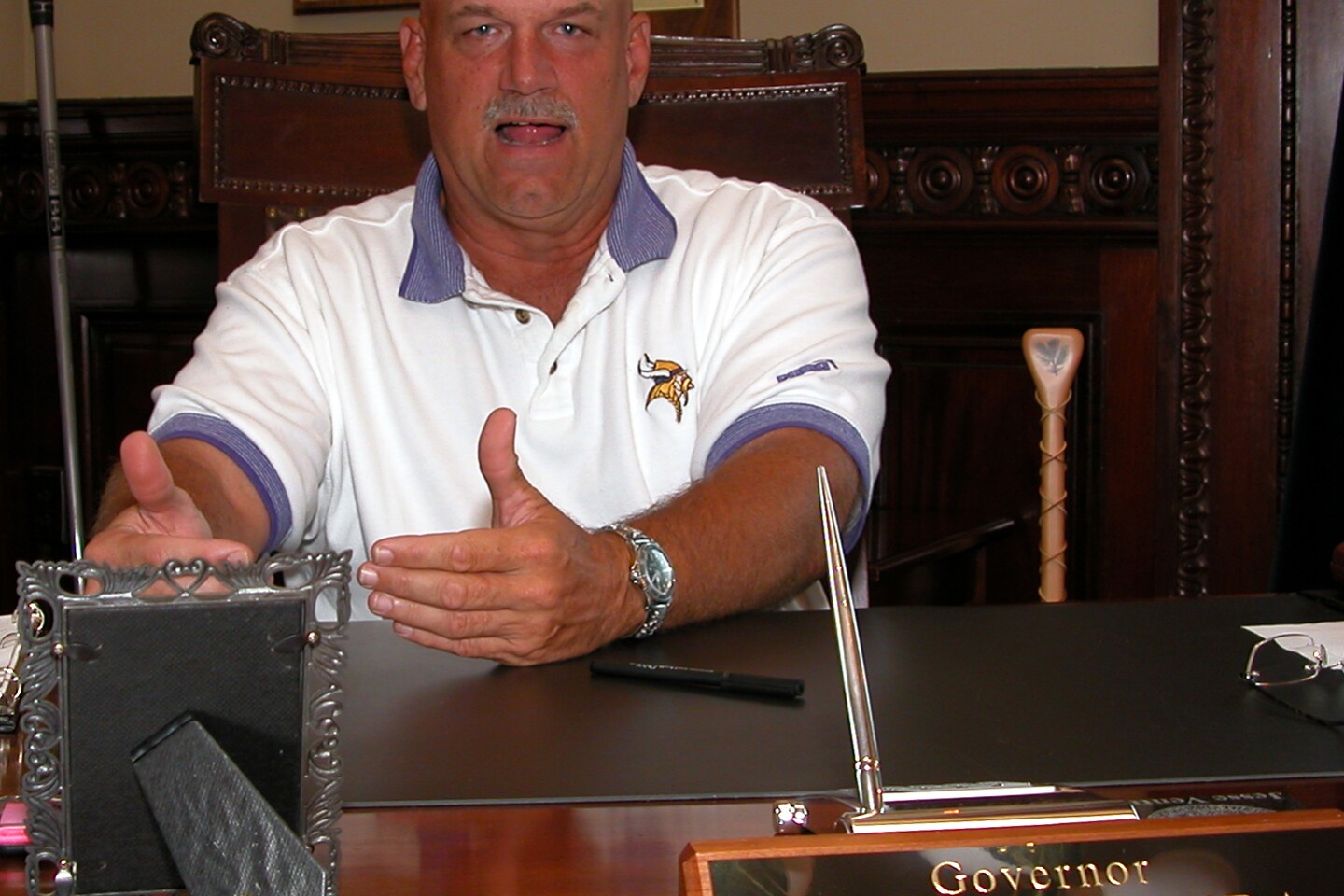ST. PAUL — No one saw it coming.
Today, Jesse “The Body” Ventura and his loud bark are so instantly identifiable — so much a part of the political memory — that it can be easy to forget the amazement, disbelief, even giddiness that greeted his election victory.
ADVERTISEMENT
Yet, He did it by galvanizing a group of young and blue-collar voters who had disdained politics as so much radioactive waste.
Few have been able to imitate the playbook until, 18 years later, another brash and unscripted candidate came along to win the presidency and upend the political world.
Ventura celebrated Donald Trump’s 2016 presidential victory when it happened, but now compares Trump to Charles Manson for encouraging his followers to engage in violent activities that ended up killing people, the Washington Post reported.
Ventura’s persona is cocky and brash. He doesn’t have time to bleed. But in an interview years later, Ventura admitted to a measure of doubt and uncertainty about running against two better-known and way-better-funded candidates. But then Ventura describes an epiphany he had on the debate stage.
“I was intimidated just slightly when (GOP gubernatorial candidate) Norm Coleman got up the first time, because he was so polished. He was the quintessential candidate. And it hit me. Wait. You want to be the opposite,” Ventura said.
“You want to be rough around the edges,” he said.
Ventura had that in spades. He had what politicos call authenticity. Political operators talk about the importance of establishing contrasts, and Ventura was living technicolor compared to the “beige” major-party candidates.
ADVERTISEMENT

That willingness to be himself enabled him to take risks that no other major-party candidate would have entertained — particularly in the area of political commercials. One TV commercial called “Jesse The Mind" showed the former wrestler posing like Rodin’s sculpture. A camera scanned his brawny body like a satellite circling a planet.
And then you know what Ventura did: He winked. Ha ha. The gesture launched thousands of voters. It let people know they were in on the joke.
Ventura says his decision to run for Minnesota governor was triggered by his annoyance and outrage by a spendthrift Minnesota Legislature. In the 1990s, economic times were great. And the state’s coffers overflowed with a $2 billion surplus. But instead of returning the surplus back to the taxpayers, lawmakers spent it.
“They kept it and spent it like kids in a candy store,” Ventura said.
But the good times also gave Ventura a political opening, said Steven Schier, a Minnesota political analyst. Voters were more willing to take a flier on a political novice because there were no major economic issues to animate and grieve the voting public.
“So economic issues were basically off the table,” Schier said. “He didn’t really have to address those in any substantive way in order to get elected. People felt they had free rein to make a fresh choice, that they weren’t burdened by big problems within the state.”
Ventura’s choice of issue to get steamed about was also revealing about what kind of governor he would be. Although bombastic and colorful as a candidate — like Trump, who presumably followed Ventura’s playbook — his political personality belied a somewhat conventional attitude toward policy.
ADVERTISEMENT
“Jesse was not a wild man in terms of policy,” Schier said. “His personal style was florid, but his policies were center-right and pretty orthodox.”
As election night approached and Ventura inched up the polls, it was still hard to imagine that Ventura would win. But if pollsters had bothered to ask, one unscientific sample of non-voters would have telegraphed the political earthquake about to happen: Kids in schools.
They loved him.
Bruce Rodgers, a retired Kellogg Middle �������� teacher in Rochester, recalls how powerfully Ventura registered with young people. Kids were endlessly repeating the macho phrase, “I ain’t got time to bleed,” made famous by Ventura’s character Blain in the movie “Predator.”
So even though Coleman and DFL candidate Skip Humphrey blanketed the TV airways with ads, the commercials were so much dust in the wind. In a mock election at Kellogg, Ventura came out on top, an outcome that was later echoed that night.
His victory validated a decision Ventura made early in the campaign to visit every college campus in the state, a strategy aides tried to talk him out of. Ventura ended up winning 50% of voters under 30 in a three-candidate race.
Ventura credits his gubernatorial victory to a “fatal error” made by the two-party system. They allowed him to debate.
ADVERTISEMENT
“You notice they haven’t allowed anybody since,” Ventura told journalist Graham Bensinger in a recent interview. “No third-party (candidate) has been allowed to debate since I won.”

















